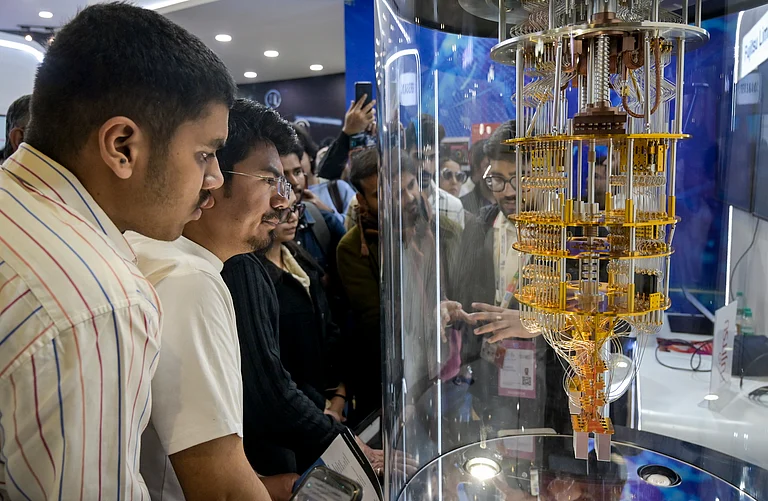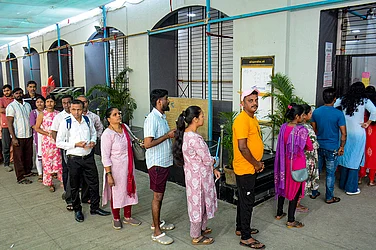
- Keynote lecture was delivered by Hon’ble Mr. Justice B.R. Gavai, Chief Justice of India and focused on the theme “Human Dignity as the Soul of the Constitution: Judicial Reflections in the 21st Century.”
- Chief Justice Gavai talks about human dignity as moral compass for the Indian Constitution.
- Dr. Abhishek Manu Singhvi talks about the role of civil society in fostering fraternity and building bridges.
The 11th Dr. L M Singhvi Memorial Lecture organised by O.P. Jindal Global University was held at Dr. Ambedkar International Centre in New Delhi on Thursday evening. The lecture was delivered by the Keynote Speaker Hon’ble Mr. Justice B.R. Gavai, Chief Justice of India and focused on the theme “Human Dignity as the Soul of the Constitution: Judicial Reflections in the 21st Century.” The Hon’ble Chief Justice was joined by the Chief Guest, Hon’ble Mr. Om Birla, Speaker of Lok Sabha, and Dr. Abhishek Manu Singhvi, son of Dr. L M Singhvi. The event was presided over by Prof. Shireen Moti, Associate Professor and Associate Dean at Jindal Global Law School.
Chief Justice Gavai’s Lecture highlighted a history of Constitutional evolution and judgements passed since the late 1970s, showing how the Indian judiciary has continued to centre human dignity as foundational to interpretations of the law, remaining responsive to the questions and conflicts of the contemporary moment. He particularly mentioned complex questions regarding the changing role of technology, and evolving notions of liberty and equality, which require jurists to work towards addressing individual as well as structural inequalities. Mentioning Dr. B.R. Ambedkar’s interpretation of caste-based untouchability as incompatible with human dignity, he highlighted how the original framers of the Constitution had envisaged human dignity as a core guiding principle for the document, and an intrinsic feature of democracy itself. He talked about several key cases concerning labour laws, prison reform, gender equality and disability accommodations, through which the Indian judiciary has continued to interpret human dignity expansively and creatively, over the late-20th and 21st centuries.
The Welcome Address was delivered by Dr. C. Raj Kumar, founding vice-chancellor of OP Jindal Global University, where he talked about Dr. Ambedkar’s vision of the Indian Constitution as a flexible and living document, responsive to the needs of its citizens. He further highlighted the role of this lecture series in reaffirming and renewing these foundational ideals of the Constitutional framers. He also mentioned Ambedkar’s words from Grammar of Anarchy, asserting that democratic change must abandon the violence of “bloody revolution.”
Dr. Singhvi paid a tribute to the speakers, as well as to his late father, celebrating this lecture as an “act of memory and meaning.” Recapping Dr. LM Singhvi’s life trajectory as distinguished jurist, diplomat and literary enthusiast, he highlighted the nature of human dignity in his life “as lived practice” as opposed to a mere constitutional ideal. Calling it the very pulse of the Constitution, he explained the role of human dignity in “transforming the legal contract into a moral covenant,” without which “liberty becomes licentious.” He recalled recent judgements such as the Navtej Johar vs Union of India case, where parts of Section 377 of the Indian Constitution were struck down, highlighting the Court’s decision to protect human dignity, including the right to life and autonomy, against “majoritarian prejudice.” He concluded, highlighting the role of civil society in honouring human dignity by “building bridges” in a time of mounting conflicts.





















